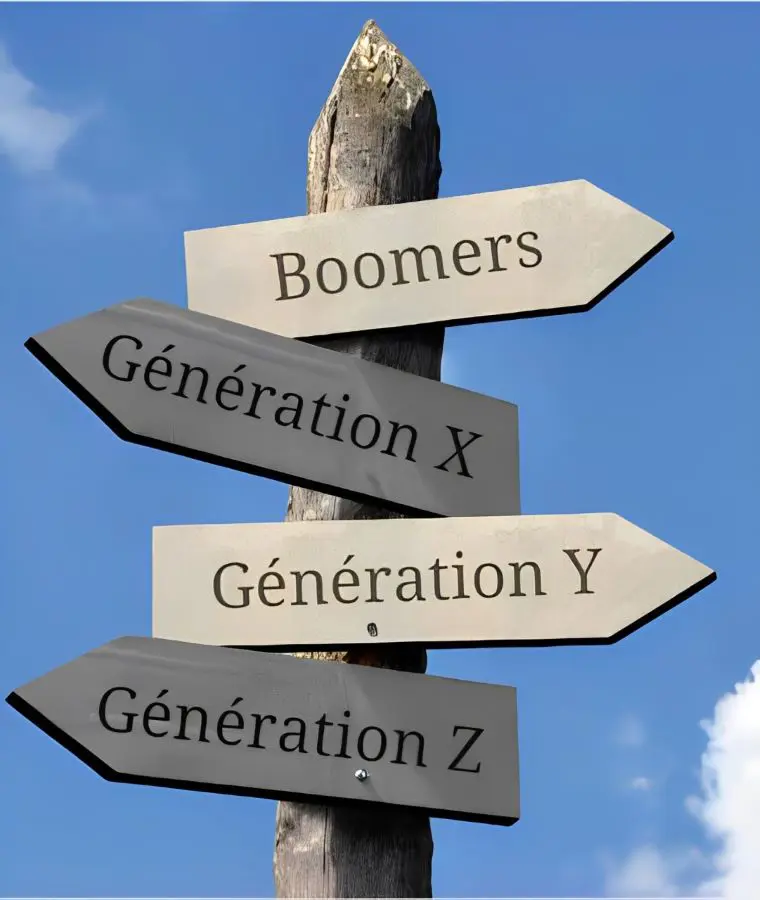Millennials or Gen Y: The Generation That Changed the World

Millennials is a term best used to represent a person born between 1981 to 1996. The word was first coined by authors William Strauss and Neil Howe in the 1991 book, Generations.
The people born in the specified years were the first generation to become adults in the current millennium, i.e. after 2000, which became the authors' reasoning for introducing the word "Millennials."
Millennials are also sometimes called Gen Y, or Generation Y, and echo boomers. The generation earned the former title because they followed Gen X (born between 1965 to 1980) and preceded Gen Z (1997-2012). Likewise, the title "echo boomers" implies that the people from this demographic were the offspring or "echo" of a baby boomer. The current population of Gen Y in the US is estimated to be around 72 million.
Gen-Yers have witnessed how the global political climate changed following the September 11 terrorist attacks along with the revolution in science and technology.
Millennials are between the ages of 27 to 42 years. Despite their relatively short lives, they have experienced severe changes in the economic and political climate. Some historical events that shaped Generation Y can be summed up in the following points:
- Terrorist attacks on the World Trade Center and the Pentagon by Al-Qaeda on September 11, 2001
- Invasion of Afghanistan in 2001 and Iraq in 2003
- Legalization of gay marriage in Massachusetts in 2004
- Growth of social media platforms like Facebook, Twitter, and YouTube
- Great Recession caused by the collapse of the housing market in 2007
- Election of Barack Obama as the first black US President in 2008
- Advancement in technology of smartphones and the electronic industry
- Rise in popularity of the LGBTQ+ movement.
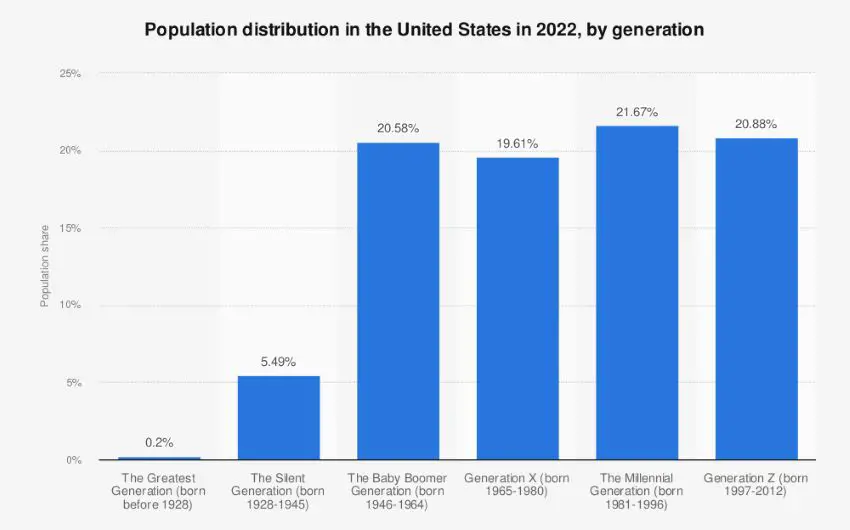
Characteristics of Millennials
Millennials show some distinct characteristics that separate them from Gen X and Gen Z. Every generation experiences some iconic moments in their lives, be it political, social, or technological advancements.
Gen Y is often linked with typical 90s stereotypes, including the popularity of video games and board games. Likewise, growing up in the age of the internet, they became aware of the different cultures and lifestyles around the world.
With further ado, let's take a look at the five major characteristics associated with the Millennials.
1. Tech-savvy
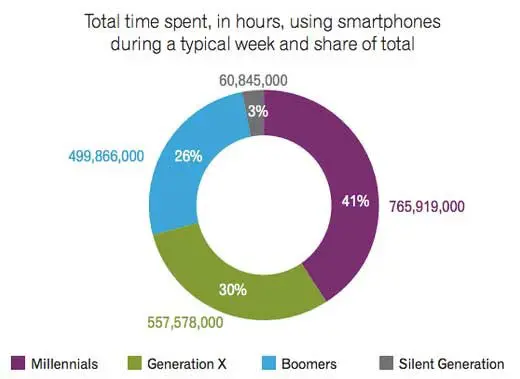
Millennials were the first generation to grow up using the internet and smartphones. Gen Y is considered the most tech-savvy generation in the current workforce.
Further, due to the rise of social media platforms like YouTube, technology has been a source of livelihood for thousands of Millennials. Even those who don't earn from the Internet have made good use of it. Gen Y revolutionized the use of technology in the professional setting by introducing emails as a source of communication, using spreadsheets for presentations, and more.
Unlike the baby boomers, Millennials don't view technology as a luxury. In fact, a research showed that nearly 81% of Gen-Yers consider the internet a basic human right.
2. Global
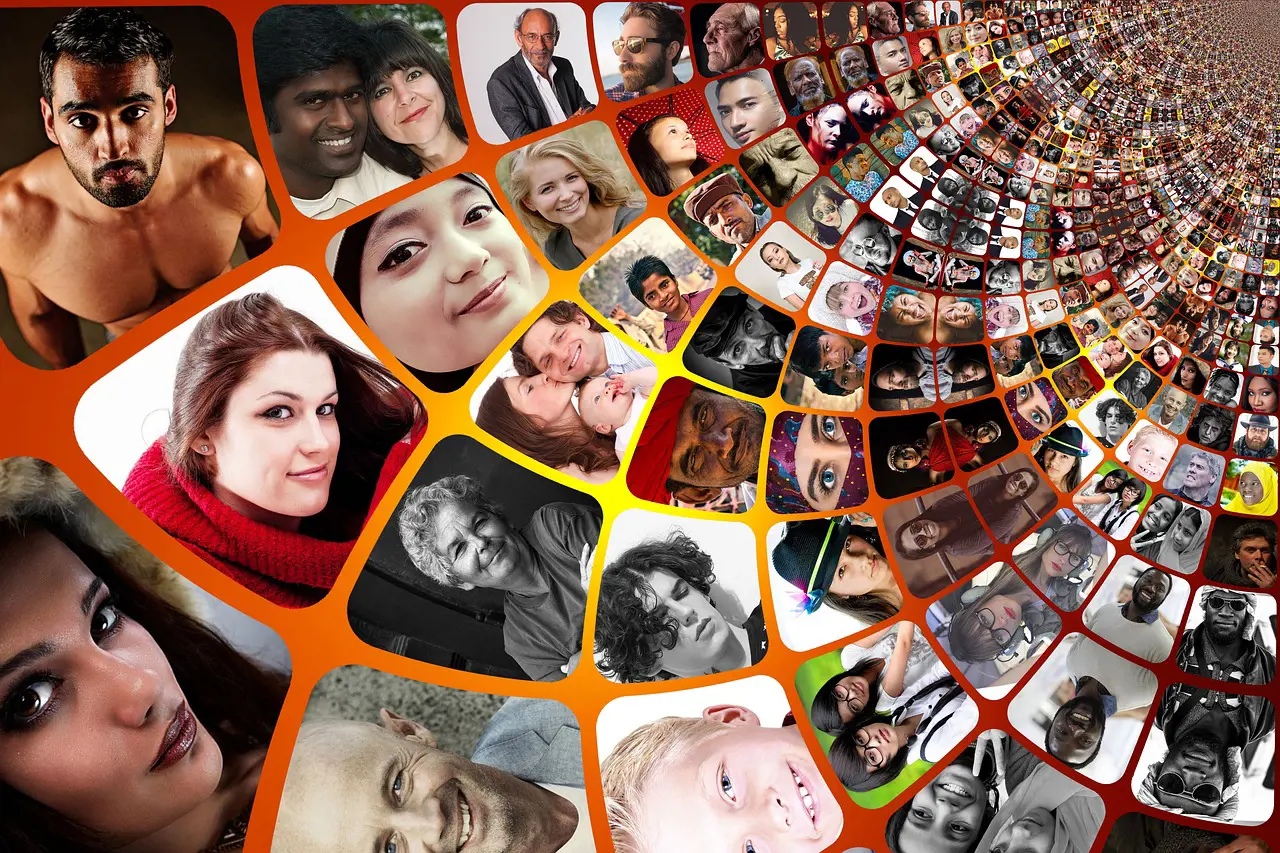
Millennials are accustomed to customs and news updates all around the globe. Gen Y has used the global market to earn their livelihood and even boost their economy.
Take Hollywood for an example. Before the age of the internet, Hollywood movies had markets in North America (US & Canada) and a few European countries. But now, their market has expanded all around the world.
Millennials innovated the idea of outsourcing many manufacturing and service-based jobs to less developed economies. The move not just helped in reducing the cost of the products but also provided employment opportunities to millions of people.
Additionally, Gen-Yers learned the cultures and traditions of different countries by regularly traveling. They embraced local cultures and even participated in those customs.
3. Diverse

Diversity has become a common word today; you might stumble upon the term multiple times in a single day. But, back in the late 80s and early 80s, the word was rarely used.
Today, the term is mostly used to describe the hiring of people from different racial/ethnical backgrounds or genders in a team. Diversity is crucial for ending the cognitive bias toward minority communities and uplifting the lives of underprivileged people.
Millennials are known to support diversity in institutions like corporate offices, schools, universities, movies, and political parties. They have also diversified themselves through their association with different social and religious movements, including veganism, atheism, feminism, environmental activism, and black lives matter.
4. Ambitious

Millennials are ambitious and prone to take more risks when compared to the baby boomers and Gen X. Gen-Yers are known for setting different professional goals and giving their best to achieve them.
Millennials greatly contributed to the rise in startup businesses post the Great Recession years. While not necessarily career-driven, they show great motivation and even use unconventional ways to achieve their targets. As the children of baby boomers, they understand the
People born from 1981 to 1996 focus on creating a healthy workplace environment but are also extremely competitive. They delay getting married until they've achieved a stable career.
While their work ethics and ambitions are commendable, these factors are not completely beneficial for the people. Their obsession with work has negatively their mental health and personal lives.
5. Optimistic
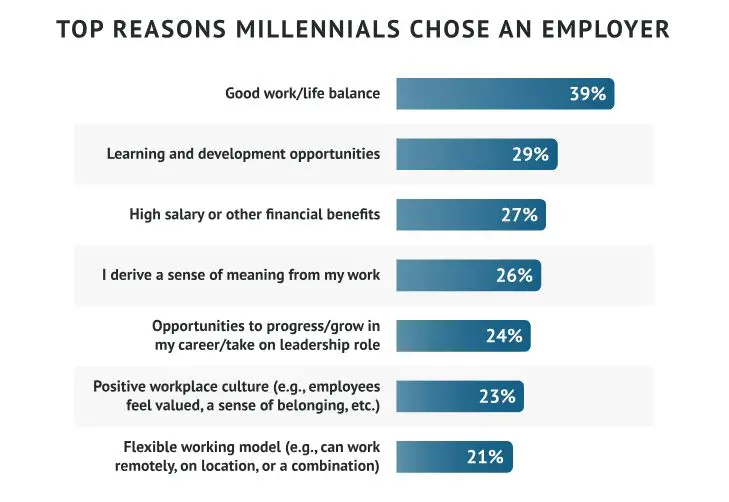
Millennials remain optimistic despite experiencing multiple political and economic disasters. They are hopeful about creating a better future where ordinary people don't have to suffer from financial, psychological, and/or environmental crises.
While their successor Gen X is famous for their activism and pessimistic approach to life, Gen-Yers are confident about attaining a better life with hard work and dedication.
Millennials witnessed the housing market collapse of 2007 and how the economy recovered in the following years. This led to the optimistic belief commonly held by the generation that things always get worse before they get better.
Impact of Millennials
Millennials have played a significant role in shaping the world we live in today. They have promoted progressive ideologies, fought for women's rights, and supported minority communities.
The actions conducted by Millennials with political or executive authorities led to the rise of diversity in the workplace and liberalism. Gen Y has strongly advocated for the sound mental health of employees all over the US.
1. The Rise of Social Media
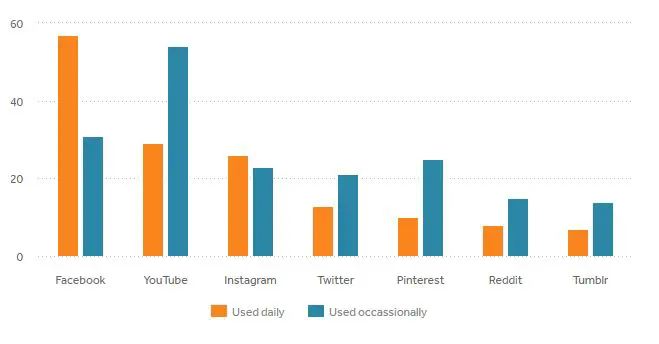
Over 90% of Millennials actively use social media, according to a survey by GitNux in April 2023. The number is significantly higher than Gen X, who have a social media engagement rate of 54%.
Millennials revolutionized social media in the mid-2000s with the introduction of Facebook in 2004. Before Facebook, the generation was mostly engaged in other networking platforms like MySpace, Yahoo, Hotmail, and more.
Gen-Yers utilize social media for several reasons, including:
- to communicate with friends and family,
- to learn new social trends and cultures,
- to spend time as a recreational activity, and
- to remain updated with the breaking news.
Similarly, Gen Y is the first generation to use social media as a platform for promoting their businesses and commercial brands. Thanks to that, people from all generations earn their livelihoods through their content on social media.
2. The Changing Workplace

Millennials follow work ethics that long for a healthy work-personal life balance. Gen Y is more focused on doing quality work instead of working long hours.
Gen Y's predecessor Gen X was extremely career-oriented. People belonging to Gen X would be employed at the same company for decades, expecting financial and societal rewards with promotions and salary hikes. In contrast, Millennials don't believe in working at the same company their whole lives. They advocate job satisfaction and are more likely to change jobs than Gen X.
While money plays a significant factor in Gen Y to retain a job, they are not always motivated by it. They value family time and want to maintain a balance between their careers and personal lives. Their efforts have significantly impacted the current workplace environment as more and more individuals are taking their family time and mental health issues seriously.
3. The New Economy
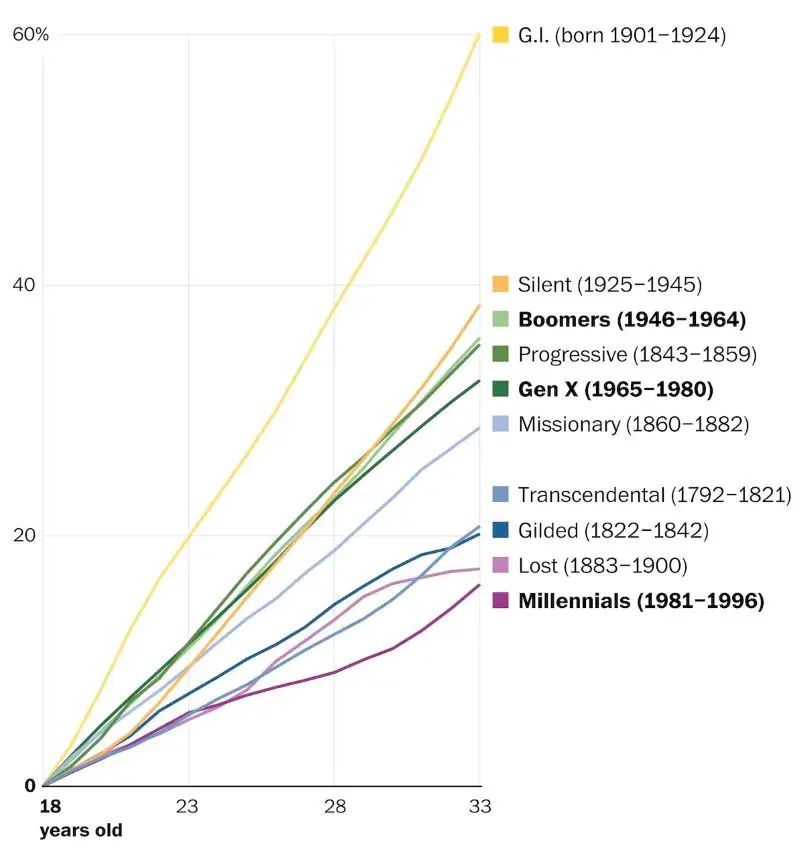
Millennials believe that startups are as important as corporate giants for an economy. Their prudent approach to making investments instead of hoarding their money in a saving account has funded thousands of small businesses and startup companies.
As they were witnesses to the housing-mortgage industry collapse of 2007, Millennials are reluctant to spend their hard-earned money on real estate. Instead, they believe in renting as it gives them a chance to move to a new location without the hassle of selling their existing homes.
Similarly, Gen Y is also credited for the growth of online monetary transactions and service companies like Amazon, Alibaba, and Uber Eats.
In conclusion, Millennials have been crucial in shaping the current economy and consumer market. Despite going through several ups and downs, they have managed to remain optimistic.
Gen-Yers' advocacy for diversity and equal rights for women contributed to the improved lifestyles of people from minority communities and change society's perception of them.
In recent times, Millennials have regularly collaborated with Gen X to raise awareness about the current climate condition and worked on combatting the issue of global warming.
Millennials are motivated by their desire to leave the world in a better condition than they found it. Their advocacy for eliminating the use of fossil fuels and combatting the global energy demand with renewable resources is a small step toward building a better future.




